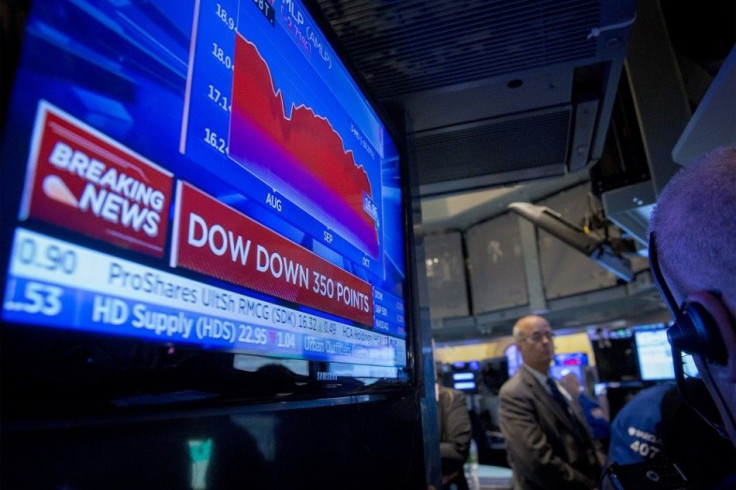Global stock-markets bleed under China slowdown: Dow Jones down 12 percent from peak

Stock markets across the world continue to crumble, fuelled by the concerns over Chinese data signaling a rapid slowing of its manufacturing sector. The hardest hit on Tuesday was Wall Street, which witnessed mayhem, marked by hard down selling with no respite across the globe.
All three major indices in the U.S. stock markets, - The Dow, the Nasdaq and the S&P 500 closed far below their opening prices following the panicked selling. For investors, concerns over China’s manufacturing sector—which in August recorded the lowest out of three years - are overwhelming considering China is the engine of world economy and a major market for American goods. A section of American investors are also in anxiety over the prospect of Federal Reserve raising interest rates soon.
US stocks plunge
The nervousness of investors was well reflected in blue-chip Dow Jones industrial average dropping nearly 3 percent to 16,058.35, while Standard & Poor's 500 index crashed about 3 percent to touch 1,913.85. On Monday, the Dow shed 1,100 points in six minutes at the start of trading, reports MSNBC. The echo of sell-off in U.S. shares had its reverberations with similar deep slides being marked in European markets. In Europe, Germany's DAX and France's CAC 40 dropped nearly 2.5 percent and Britain's FTSE fell over 3 percent. In Asia, China's Shenzhen market was down 4.6 percent and Shanghai composite plunged 1.2 percent while Japan's Nikkei index lost 3.84 percent.
Rationale of crash
Analysing the reasons for the panicky sell off, David Schegoleit, managing director of investments for U.S. Bank's wealth management unit told the Los Angeles Times that the immediate cause of the sell-off was the release of new economic data showing a weaker than expected manufacturing climate in China and a “hard landing” as the Chinese economy decelerates.
Marc Pado, president and U.S. market strategist of DowBull Consulting in Lake Tahoe, Nev., added that China has the ability to manage its economy and prevent it from slowing too quickly, even if it means creating more problems in the future.
With visible ripples of anxiety seen in markets over the depth of China's economic troubles, many are looking at the U.S. economy to see if it can expand and offset the sluggish global economic growth.
This sentiment was expressed by Russ Koesterich, global chief investment strategist for New York's BlackRock Inc., who noted that the U.S. economy is performing relatively well “despite the challenges in China and other emerging markets.”
All eyes on US employment report
Meanwhile, investors will pay attention to the monthly U.S. employment report for August. To be released by the Commerce Department on Sept. 4. The data will show nonfarm payrolls, unemployment rate, average hourly earnings and other indicators that might document the economic recovery of the U.S.
For feedback/comments, contact the writer at feedback@ibtimes.com.au or let us know what you think below.





















